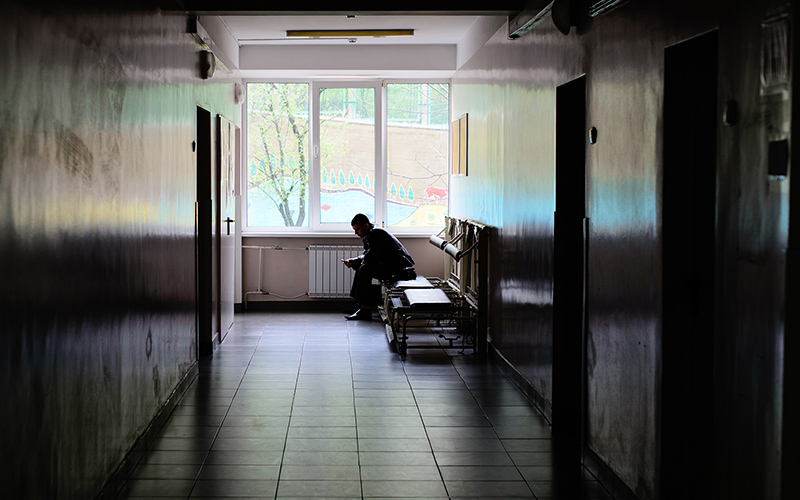WASHINGTON – The White House unveiled a task force Tuesday that would find ways to prevent sexual abuse of children in the Indian Health Service, after an IHS pediatrician’s conviction last year on four counts of abuse.
The seven-member task force of prosecutors, social workers and health care specialists, including one from a Navajo Nation clinic, will look at “systemic problems that may have failed to prevent this doctor’s actions and led to any failures of the Indian Health Service.”
“The task force will develop recommended policies, protocols, and best practices to protect Native American children and prevent such abuse from ever happening again,” said a White House statement on the initiative.
While they welcomed the news, some advocates were skeptical that anything less than a massive overhaul of the culture at IHS will be able to protect children from further abuse. They noted that Stanley Patrick Weber, the doctor convicted in 2018, faced numerous claims of abuse on reservations in Oklahoma, Montana and South Dakota before being caught.
“This is a dynamic threat, this isn’t, ‘Oh, you check off these items and your organization is now safe,'” said Peter Janci, a lawyer in Oregon who is investigating a civil claim involving Weber. “These predators will find a way to infiltrate organizations to get positions where they have access to kids.
“There’s a range and a spectrum of what we see,” Janci said. “There are cases where individual perpetrators are discovered and they’re transferred to another position and allowed to have access to people.”
The task force will be co-chaired by Joseph Grogan, assistant to the president for domestic policy, and U.S. Attorney for the Northern District of Oklahoma Trent Shores, a member of the Choctaw Nation. White House officials said on a conference call announcing the task force that it aims to have policy recommendations in a few months.
“This isn’t something that’s going to be dragged out,” said a senior official on the call. “Our goal is to hustle.”
Janci said the task faces a big challenge.
“It’s not something where – with all due respect to the commission – it’s not something where we can just have a checklist and say well as long as we have these key things we can pronounce ourselves safe.” said Janci, who has handled sexual abuse cases for years.
The task force will focus on prevention. But that’s only half the problem, according to one woman whose family has grappled with the issue of abuse.
Anna Rondon, a member of the Navajo Nation, said her family was left to deal with trauma alone after a family member was sexually abused from age 8 to 12.
“The ramifications when you’re in the moment of dealing with that past, it’s like what do you do now?” she said. “It’s mind-boggling. It’s like dying, really.”
Rondon uprooted her family and relocated after years of trying to process the trauma. Visits to their local Indian medical center were met with a rotating cast of therapists and psychiatrists, making it harder to get comprehensive care.
“There is really no quality follow-up care for the survivors at all,” Rondon said. “We lack providers. We lack quality providers.”
While she hopes the task force comes up with solutions that protect children from further harm, Rondon said she thinks there will have to be an overhaul of Native culture.
“We can’t be silenced no more,” she said. “We got to change the DNA of who we are by speaking up and not hiding and letting that sickness manifest in our blood and in our mind. We really need to recapture who we are as Navajo.”
Janci said the issue is not unique to the reservation and, as other institutions have found, solving it will not be easy.
“Whether it’s the Catholic Church, the Boy Scouts of America, a medical entity … this type of pattern can be repeated over and over again,” he said. “The dynamics are similar even if the specific entity is different.”
Subscribe to Cronkite News on YouTube.
